-Blog post by Gerald Ward, Media & Digital Services Librarian & Christina Cavanaugh, Print Shop Manager
In the realm of literature, words have the power to inspire, challenge, and provoke thought. They possess the unique ability to shape minds, foster empathy, and ignite revolutions. Yet, paradoxically, the written word can also be seen as a threat by those who fear its transformative potential. In many corners of the world, books that explore contentious ideas or challenge prevailing norms are met with a heavy-handed response: censorship and outright banning.
In this blog post, we will embark on a journey through the complicated terrain of literary censorship. We traverse continents and cultures to explore a curated selection of books that are currently or recently banned or challenged in countries around the world. Each of these works represents a unique facet of the global struggle for free expression and intellectual freedom.
From the politically charged to the artistically daring, these banned books encompass a spectrum of ideas that governments, authorities, or organizations have deemed too incendiary, subversive, or heretical for public consumption. Our exploration will not only unveil the titles themselves but also delve into the reasons behind their suppression, the impact on the authors and their societies, and the enduring debate over the boundaries of censorship and free speech.
Western Asia/Middle East
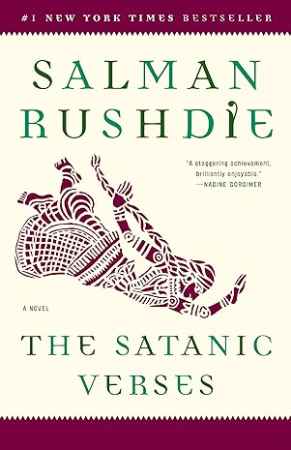
The Satanic Verses, by Salman Rushdie
https://hpulibraries.on.worldcat.org/oclc/18558869
One book that is currently banned throughout the Middle East is The Satanic Verses by Salman Rushdie. The book was originally published in 1988 and received significant backlash and protests from Muslims worldwide. These protests were triggered by two passages in the book that were perceived as blasphemous: a depiction of the Prophet Muhammad as a false prophet and an account of the angel Gabriel delivering incorrect verses of the Quran to Muhammad.
In 1989, Ayatollah Khomeini, Iran’s supreme leader at the time, issued a fatwa demanding Rushdie’s execution. This fatwa led to a series of violent acts against Rushdie and his translators, including the murder of Hitoshi Igarashi, the Japanese translator of the book.
The Satanic Verses continues to be banned in numerous Muslim-majority nations, such as Iran, Saudi Arabia, and Egypt. Additionally, some non-Muslim countries like India and Bangladesh have also banned the book.
The ban on The Satanic Verses is a matter of controversy. Some argue that the book is blasphemous and thus justifies its prohibition, while others maintain that it is a piece of literature that should be protected under the principle of freedom of expression.
East Asia
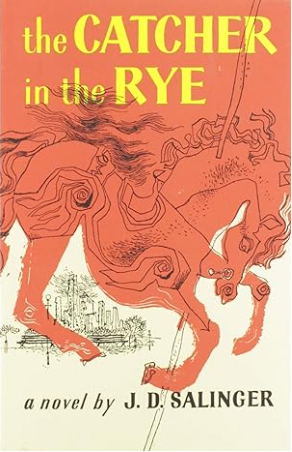
The Catcher in the Rye, by J.D. Salinger
https://hpulibraries.on.worldcat.org/oclc/3589349
The Catcher in the Rye is a renowned American literary work authored by J.D. Salinger. It narrates the story of an adolescent named Holden Caulfield who harbors a rebellious nature and holds a critical perspective toward figures of authority and the adult world. The novel is celebrated for its candid and sincere depiction of adolescent sexuality, feelings of isolation, and hopelessness.
Several factors contribute to the banning of The Catcher in the Rye in East Asia. One reason for this prohibition lies in the book’s portrayal of authority figures. The protagonist’s rebellious demeanor and propensity to question the established order are viewed as potential threats to the stability of East Asian societies. These societies often embrace values that heavily emphasize respect for elders and complete compliance with authority.
Another cause for the ban of The Catcher in the Rye in East Asia stems from its explicit and unreserved representation of teenage sexuality. This topic is considered taboo within many East Asian cultures, which generally exhibit conservative attitudes toward sexual matters.
Lastly, The Catcher in the Rye is prohibited in East Asia due to its exploration of themes like detachment and despondency. These themes are regarded as disruptive and unsettling within numerous East Asian cultures, which prioritize social cohesion and harmony.
South and Southeast Asia
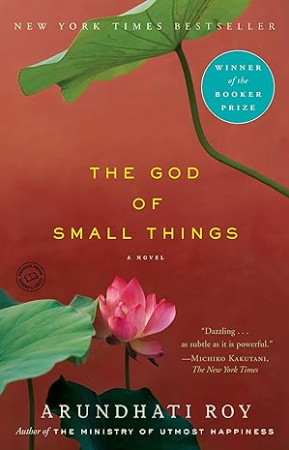
The God of Small Things, by Arundhati Roy
https://hpulibraries.on.worldcat.org/oclc/35744382
The God of Small Things is an award-winning novel written by Arundhati Roy in 1997. Set in India, it explores various societal themes, including social discrimination, family dynamics, love, and caste intricacies. Despite its critical acclaim and winning the Booker Prize, the book has faced censorship and bans in some South Asian countries.
Certain factors underpin the book’s ban. Firstly, some authorities in South Asian nations object to the explicit sexual content and themes related to sexuality, including incestuous relationships. Such countries uphold strict standards on literature, especially with regards to depictions of sexuality, leading to bans on grounds of obscenity and moral impropriety.
Secondly, the novel boldly delves into the issue of caste discrimination in India. It uncompromisingly portrays the harsh realities of oppression tied to caste hierarchies and power dynamics underlying such societal structures. Some governments or authorities in South Asian nations have imposed bans as a measure to avoid exacerbating tensions or stifling discussions on sensitive social issues.
Furthermore, Arundhati Roy’s vocal criticism of governmental policies and societal injustices have made her a controversial figure in some South Asian countries, leading to the banning of her book as a response to her criticism of the political establishment.
The book’s anti-establishment tone, coupled with themes of rebellion and resistance against established norms, has raised suspicions among authorities in some South Asian countries, particularly those with authoritarian tendencies. Some scenes depict unconventional religious beliefs and practices, which can be viewed as offensive or blasphemous by religious authorities or conservative communities in South Asia and incited calls for banning the book on religious grounds.
Lastly, the novel delves into the complexities of nationalism and identity, particularly within the framework of post-colonial India. Discussions surrounding national identity can be politically charged in certain South Asian countries. As such, a book that challenges or critiques prevailing narratives may become a target for censorship.
Multiple Countries, Including Iran and the United States
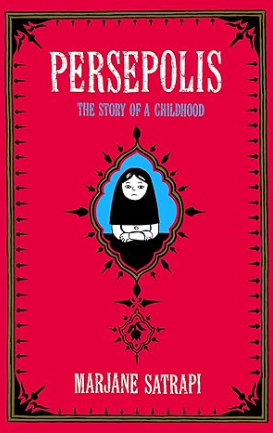
Persepolis, by Marjane Satrapi
https://hpulibraries.on.worldcat.org/oclc/50670595
Persepolis by Marjane Satrapi has faced challenges and bans in multiple countries, primarily due to its content, themes, and unique format.
The book’s graphic novel format, which utilizes visual storytelling through illustrations and comics-style artwork, has drawn criticism from conservative individuals and groups. They believe it may not be suitable for young readers or find it to deviate from traditional literary norms.
Being a memoir, Persepolis delves into the author’s upbringing during Iran’s Islamic Revolution, touching upon significant political and historical events such as the overthrow of the Shah, the rise of the Islamic Republic, and the Iran-Iraq War. In certain countries and communities, these themes are considered sensitive or contentious.
Criticism of religious and cultural practices in Iran is intertwined throughout the narrative, leading to objections from religious authorities and conservative factions in specific regions.
The book explores themes related to gender, identity, and personal freedom, particularly the author’s struggle with her identity within a changing and restrictive society. These topics have raised concerns among certain individuals and communities. Certain sections of the book contain mature content, including depictions of violence and personal challenges, causing disputes in educational settings, particularly regarding age-appropriate reading materials.
In some cases, Persepolis has faced objections due to misunderstandings or misinterpretations of its content. Individuals or groups may object to the book without fully understanding its nuanced portrayal of Iran’s intricate history and culture.
It is important to emphasize that while Persepolis has encountered bans and disputes in numerous locations, it has also received critical acclaim and is widely recognized as a significant literary work offering profound insights into Iranian history and culture.
Africa
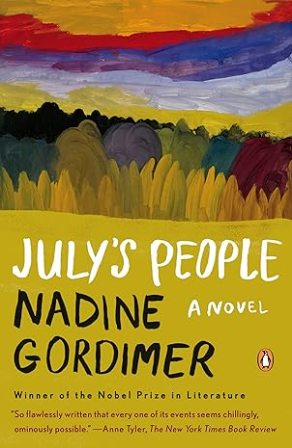
July’s People, by Nadine Gordimer
https://hpulibraries.on.worldcat.org/oclc/6863493
A significant shock and setback struck the heartland of South Africa’s Gauteng province in 2001 when both Nadine Gordimer’s July’s People and William Shakespeare’s plays, such as Julius Caesar and Othello, were banned from the school system. A panel of officials claimed that these plays were “racist, sexist, or not uplifting” and recommended their removal from school reading lists, as reported by (BBC News, 2001).
This decision came as a profound surprise to Nadine Gordimer, the author of July’s People. She had spent 40 years fighting against oppression and segregation in South Africa, even earning a Nobel Peace Prize for her literature in 1991. In response to the officials’ decisions, more than 100 writers signed a petition against the ban. Shortly after the challenge, the education department shifted its focus to rotate books through circulation and adopt a new method for selecting reading materials for students without entirely removing them from the curriculum.
The Caribbean

Animal Farm, by George Orwell
https://hpulibraries.on.worldcat.org/oclc/27216488
George Orwell was no stranger to having his two most popular books widely challenged across several countries. Both 1984 and Animal Farm were banned in the Soviet Union, and Animal Farm is still banned in Cuba today. It’s not surprising that a book that offers criticism or satirical depictions of communism would be banned in Cuba. Many authors in Cuba face significant challenges in publishing anything that isn’t pro-Castroism. Meanwhile, books like Don Quixote receive high praise and have wide availability, as they align with Castro’s message or how he interpreted it.
Central America
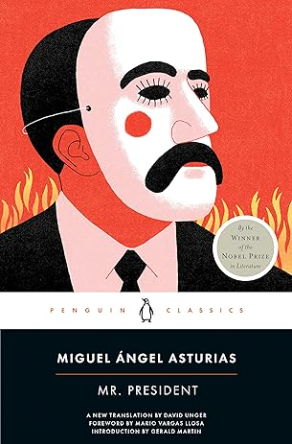
El Señor Presidente, by Miguel Ángel Asturias
https://hpulibraries.on.worldcat.org/oclc/16742579
El Señor Presidente, also known as “Mr. President,” by Miguel Ángel Asturias, is a novel from 1946 that delves into the theme of political dictatorship, drawing inspiration from the real-life President of Guatemala, Manuel Estrada Cabrera. Miguel struggled for thirteen years to publish his book, as it was banned by the government. However, the novel garnered remarkable feedback and achieved great success in both the US and European markets. His work was acclaimed for introducing an entirely new literary language, leading to him receiving both the Nobel Prize and the Lenin Peace Prize—accomplishments only achieved by three writers, including himself. Notably, he was the first Latin American novelist to win the Nobel Prize in Literature (Mochkofsky, 2022).
Oceania
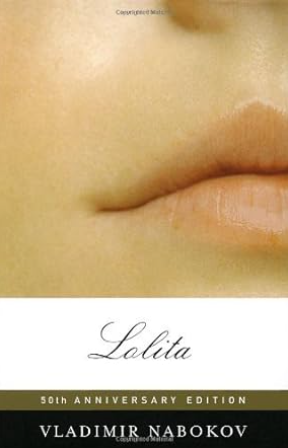
Lolita, by Vladimir Nabokov
https://hpulibraries.on.worldcat.org/oclc/25632146
Banned in several countries around the world, both in the past and the present, as well as in schools and libraries in the US, Lolita is no exception to this list. Lolita is a controversial novel about a professor who falls in love with his 12-year-old stepdaughter, Dolores Haze.
Published in 1955 after the Russian author struggled to find a publisher in his home country, the book was banned in New Zealand in 1959, but the ban was later appealed in 1964, and it remained banned in Australia until 1965.
While the book may not be as well-known today, the term coined from it, “Lolita,” is widely used in anime culture and popular culture to refer to a seductive, precocious girl. Even today, Oceania countries ban Japanese or Chinese books that depict Lolitas or contain Lolita themes.
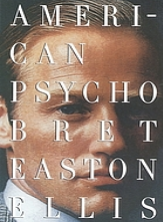
American Psycho: A Novel, by Bret Easton Ellis
https://hpulibraries.on.worldcat.org/oclc/22308330
This widely acclaimed novel, released in 1991, raised significant concerns among Australians due to its extreme violence, sexual content, and obscene nature. American Psycho tells the story of a wealthy New Yorker, Patrick Bateman, who appears to lead the life of a typical investment banker while secretly indulging in a much darker existence filled with violence and murder. This book is not only rated R18 or R+ (for adults only), but it remains banned in Queensland, Australia, while the rest of the country requires it to be sold in sealed or wrapped packaging.
While the ban still persists in Australia, it is evident that Ellis understands his American audience well. Its film adaptation remains relevant today and is frequently used in internet culture to portray Patrick Bateman in various satirical scenarios.
Conclusion
In conclusion, the issue of banning books is a complex and contentious one. It is crucial to safeguard the right to freedom of expression and intellectual freedom while also acknowledging the concerns surrounding potential harm, especially for vulnerable populations.
The books discussed in this blog post offer only a glimpse into the vast and ever-changing collection of banned literature. Each work sheds light on the difficulties individuals face in obtaining information and ideas in various parts of the world.
Library employees have a crucial responsibility in upholding the right to read. By offering access to a diverse range of materials, regardless of their perspective or popularity, librarians uphold the fundamental values of intellectual freedom and democracy.
During times of censorship, it becomes even more important to reaffirm our dedication to the power of the written word. We must unite to defend our right to read and to think critically.
Here are some specific ways that library staff can protect your ability to read these books and your right to read:
- Ensure access to a wide range of materials, including those that challenge conventional norms and explore controversial subjects.
- Advocate against bans and restrictions on books. Librarians can speak out in support of the right to read and work towards overturning these limitations.
- Educate the public on the significance of intellectual freedom. Library staff can enlighten patrons about the dangers of censorship and the importance of having access to a broad spectrum of information.
- Support authors and publishers of banned books. Librarians can purchase books from banned authors and publishers and organize events and programs to promote their work.
By taking these measures, library staff can play an integral role in safeguarding the right to read and ensuring that everyone has access to the information and ideas they require.
References
HPU Libraries. (2023). American psycho : a novel [Image]. High Point University. https://hpulibraries.on.worldcat.org/search/detail/22308330?queryString=American%20psycho&clusterResults=true&groupVariantRecords=false
Amazon. (n.d.). Animal Farm [Image]. https://www.amazon.com/Animal-Farm-George-Orwell-ebook/dp/B0CJ6L2ZFN/ref=sr_1_1?keywords=Animal+Farm%2C+by+George+Orwell&s=books&sr=1-1
Amazon. (n.d.). July’s People [Image]. https://www.amazon.com/Julys-People-Nadine-Gordimer/dp/0140061401
Amazon. (n.d.). Lolita [Image]. https://www.amazon.com/Lolita-Anniversary-Paperback-Vladimir-Nabokov/dp/B00EB0Q91O/ref=sr_1_6?keywords=Lolita%2C+by+Vladimir+Nabokov&s=books&sr=1-6
Amazon. (n.d.). Mr. President (Penguin Classics) [Image]. https://www.amazon.com/Mr-President-Miguel-%C3%81ngel-Asturias/dp/0143136380/ref=d_m_crc_dp_lf_d_t1_sccl_3_2/140-7747821-1196061?content-id=amzn1.sym.76a0b561-a7b4-41dc-9467-a85a2fa27c1c&pd_rd_i=0143136380&psc=1
Amazon. (n.d.) Persepolis : The story of a childhood [Image]. https://www.amazon.com/Persepolis-Childhood-Pantheon-Graphic-Library/dp/037571457X/ref=sr_1_1?keywords=persepolis+by+marjane+satrapi&s=books&sr=1-1
Amazon. (n.d.). The god of small things [Image]. https://www.amazon.com/God-Small-Things-Novel/dp/0812979656/ref=sr_1_1?keywords=The+God+of+Small+Things%2C+by+Arundhati+Roy&s=books&sr=1-1
Amazon. (n.d.). The Catcher in the Rye [Image]. https://www.amazon.com/Catcher-Rye-J-D-Salinger/dp/0316769177/ref=sr_1_1?keywords=The+Catcher+in+the+Ryle%2C+by+J.D.+Salinger&s=books&sr=1-1
Amazon. (n.d.). The Satanic Verses: A Novel [Image]. https://www.amazon.com/Satanic-Verses-Novel-Salman-Rushdie/dp/0812976711
BBC News. (2001). South Africa reinstates authors. BBC NEWS. http://news.bbc.co.uk/2/hi/entertainment/1291396.stm
Mochkofsky, G. (2022, August 10). The Timely Return of a Dictator Novel. The New Yorker. https://www.newyorker.com/news/daily-comment/the-timely-return-of-a-dictator-novel
Sources:
http://news.bbc.co.uk/2/hi/entertainment/1291396.stm
https://en.wikipedia.org/wiki/July%27s_People
https://www.theguardian.com/books/2001/apr/19/fiction.artsandhumanities
https://web.archive.org/web/20110629042708/http://www.info.gov.za/speeches/2001/010420945a1006.htm
https://www.enotes.com/homework-help/why-is-1984-a-banned-book-2425116
https://theculturetrip.com/north-america/articles/the-12-most-famous-banned-books-of-all-time
https://translatingcuba.com/books-banned-at-cubas-book-fair-cubanet-roberto-quinones/
https://geediting.com/forbidden-books-2019-map/
https://bookanalysis.com/george-orwell/censorship/
https://www.counterpunch.org/2017/12/15/why-don-quixote/
https://www.newyorker.com/news/daily-comment/the-timely-return-of-a-dictator-novel
https://americasquarterly.org/article/a-guatemalan-classic-on-the-nightmare-of-dictatorship/
https://www.thenation.com/article/culture/my-president-mario-vargas-llosa/
https://www.nobelprize.org/prizes/literature/1967/asturias/biographical/
https://www.goodreads.com/book/show/59410869-mr-president
https://en.wikipedia.org/wiki/El_Se%C3%B1or_Presidente#Reception
https://en.wikipedia.org/wiki/Censorship_in_Guatemala
https://en.wikipedia.org/wiki/List_of_books_banned_by_governments#cite_ref-128
https://geediting.com/forbidden-books-2019-map/
https://uk.news.yahoo.com/on-this-day–lolita-published-after-ban-in-britain-145852427.html
https://geediting.com/forbidden-books-2019-map/
https://www.abc.net.au/news/2019-08-23/dangerous-and-deeply-disgusting-books-once-banned/11421108
https://www.panmacmillan.com/blogs/literary/american-psycho-controversy-banned-book-censorship
https://www.smh.com.au/opinion/what-does-it-take-to-get-banned-in-this-town-20150430-1mx6w2.html
https://journal.media-culture.org.au/mcjournal/article/view/2657
https://knowyourmeme.com/memes/subcultures/american-psycho-patrick-bateman



